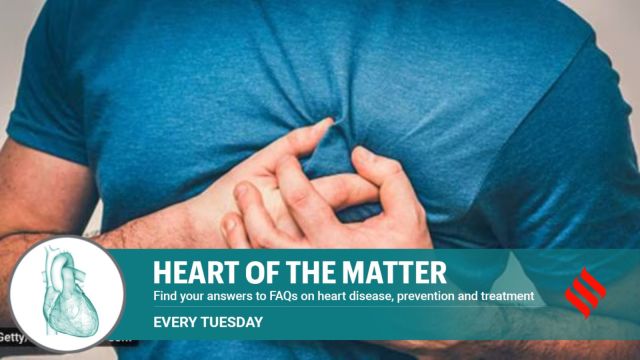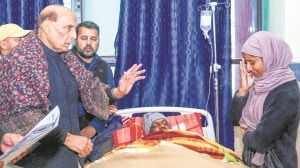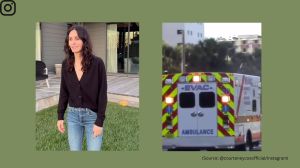- India
- International
Is there a heart attack prevention pill you need to take?
Dr Nishith Chandra, Principal Director, Interventional Cardiology, Fortis Escorts Heart Institute, Delhi, on why aspirin is not the answer.
 Aspirin is to be given only after occurrence of a heart attack or stroke to prevent a reoccurrence. (Source: Getty)
Aspirin is to be given only after occurrence of a heart attack or stroke to prevent a reoccurrence. (Source: Getty)Many patients of mine ask me about the benefits of having baby aspirin, or a low-dose aspirin between 75 and 100 mg, for primary prevention of cardiovascular diseases. And I say you need none if you are able to control your hypertension, cholesterol and blood sugar well with lifestyle changes and specific medication addressing these comorbidities.
Increasingly research shows that the risks, usually raising the possibility of internal bleeding, far outweigh the benefits, which are very marginal compared to those who are not on a preventive dosage. Collating several studies together, several protocols on primary prevention have been changed over the last couple of years. Now aspirin is to be given only after occurrence of a heart attack or stroke to prevent a reoccurrence. Even that use we grade patient to patient.
How aspirin prevents clotting
Aspirin has blood-thinning properties that can reduce the likelihood of blood clots forming in stressed heart arteries laden with plaque. But these same properties can also cause ulcers and bleeding in the digestive tract. Studies now conclude that there is “no net benefit” of taking aspirin for primary prevention of heart disease in those 60 and older. People younger than 50 should not take aspirin for primary prevention at all.
Just last month, a review of data from three clinical trials, published in the medical journal Circulation, showed no statistical difference between the group that had aspirin as a prevention against heart disease and those who did not. The research examined the results from clinical trials involving more than 47,000 patients in 10 countries, including the US, the UK and Australia.
What are side effects of preventive aspirin use?
Baby aspirin slows down the clotting action of platelets, thinning the blood. But it is because of this function that it can sometimes make you bleed more easily. You may get nosebleeds, gum bleeds, and during injuries or cuts, the blood may take longer than normal to stop.

Data from a large clinical trial of healthy older adults, the results of which were published in JAMA Network last year, found higher rates of brain bleeds among those who took daily low-dose aspirin and no significant protection against stroke. Older people, who do not have a history of heart conditions or demonstrate any worrisome signs or symptoms of stroke, should be particularly cautious about taking aspirin, the study says as they are anyway more prone to falls and bleeding, which could be aggravated if they are on the drug.
What are better prevention strategies?
In an era where we control hypertension, blood sugar and high cholesterol better for primary prevention, aspirin may only be minimally beneficial with an increased bleeding risk. Of course, one must emphasise the value of statins in reducing cholesterol and preventing a heart attack or stroke.
Cardiologists have already moved away from aspirin to clopidogrel, which has been found to be more effective in its preventive role and even among those who have undergone coronary stenting and successfully completed dual antiplatelet therapy, regardless of diabetes status.
Taking clopidogrel helps prevent blood clots if you have an increased risk of having them.
Don’t self-medicate with aspirin in the hope of that becoming a preventive if you have not had any episode so far. Instead, take care of your co-morbidities first with lifestyle correction, diet, exercise and keeping markers like blood cholesterol and blood sugar in control. Always follow the cardiologist’s advisory on which drug to take and for how long.
Apr 05: Latest News
- 01
- 02
- 03
- 04
- 05





























